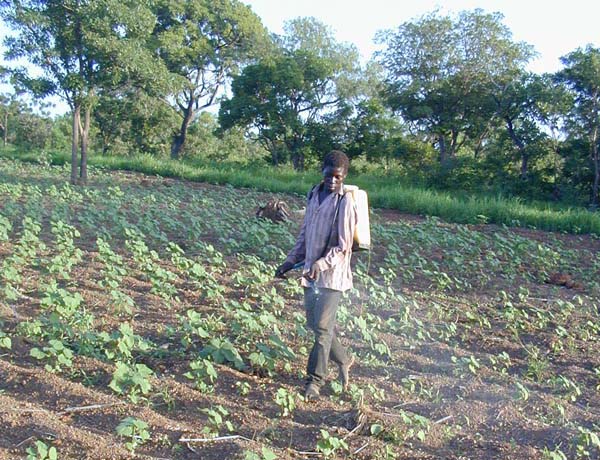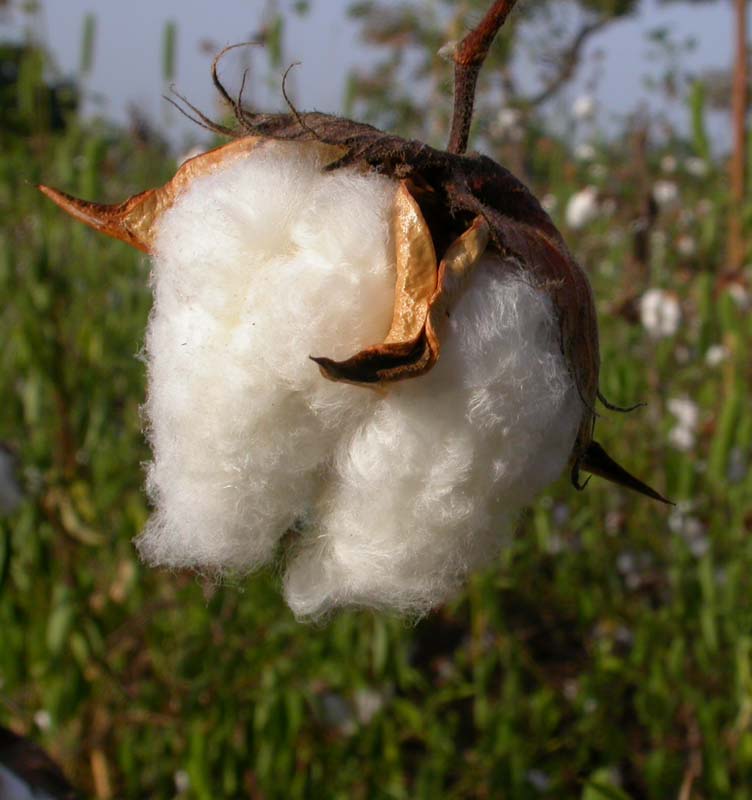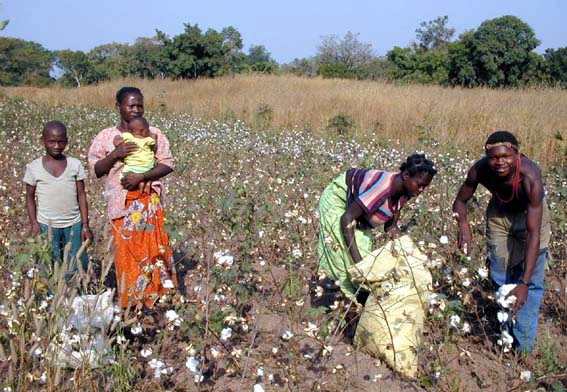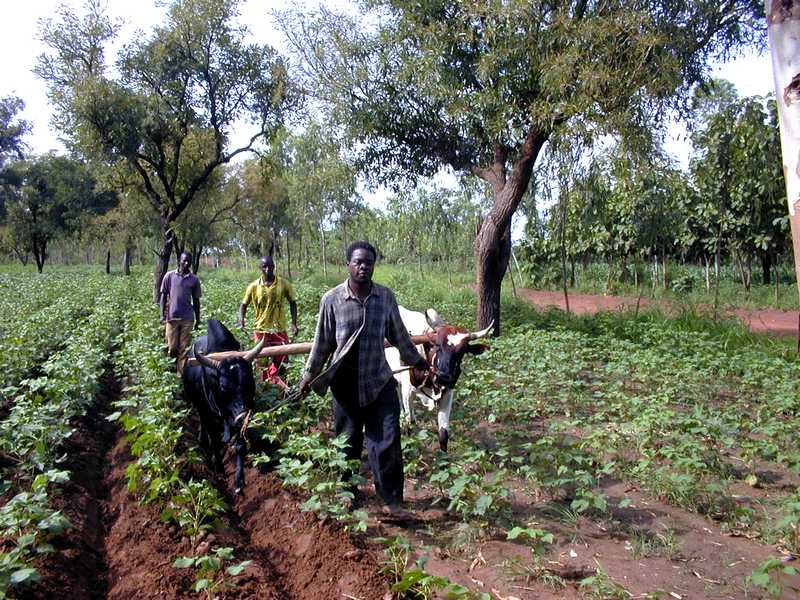Clashes between the police and cotton farmers
It is time that I give you some news on the developments in the cotton sector in Burkina. Those of you who do not have access to the press of Burkina may indeed believe that the dispute between the cotton farmers and the SOFITEX company, which I reported on in our newsletter of May 8th 2011, has been settled. But this is not at all the case. Not only is the boycott of growing cotton for the forthcoming season a reality, but some cotton farmers have even gone as far as destroying the fields of other producers.
How did it come to this?

 That is what I wanted to understand before taking it up here. Let us start by recalling some of the facts. On May 9th the Association interprofessionnelle du coton du Burkina, AICB (Joint organisation of cotton growers, traders and operators in the sector) confirmed the cotton price for the forthcoming season. The price of fertiliser was to be reduced by a mere 1 000 CFA francs per 50 kg. On May 12th the press reported on this ultimate decision. The document was duly signed by the AICB president, who is also president of the National Union of Cotton Farmers’ organisations of Burkina, the UNPCB. The next day the president signed a newspaper article castigating cotton farmers who had joined the boycott. It was published by the Burkinabè daily paper SIDWAYA, n° 6923.
That is what I wanted to understand before taking it up here. Let us start by recalling some of the facts. On May 9th the Association interprofessionnelle du coton du Burkina, AICB (Joint organisation of cotton growers, traders and operators in the sector) confirmed the cotton price for the forthcoming season. The price of fertiliser was to be reduced by a mere 1 000 CFA francs per 50 kg. On May 12th the press reported on this ultimate decision. The document was duly signed by the AICB president, who is also president of the National Union of Cotton Farmers’ organisations of Burkina, the UNPCB. The next day the president signed a newspaper article castigating cotton farmers who had joined the boycott. It was published by the Burkinabè daily paper SIDWAYA, n° 6923.
Some day one really has to ask whether the UNPCB is actually playing its part (and ask what its part should be) when its president, in his capacity as president of the joint organisation, signs an agreement on the cotton price? When the rank and file members do not follow, should it not have abstained?
The fact remains that as of that moment the dialogue seems to have stopped and that a number of cotton producers resented these decisions. In several provinces meetings were held and it was decided not to produce any cotton this year. Subsequently, I have been told that some producers who had adhered to the general decision changed their mind and went to sow cotton. Some of the most determined farmers in a number of communities in the country reacted against this u-turn and went so far as to destroy the sown cotton fields.
One may easily understand that the government was not happy about this. Mais fallait-il utiliser la force ? But was it necessary to use force? At any rate that is what happened in Kénédougou (in the south-west of Burkina). Below is an article from SIDWAYA of Friday July 15th:«
”Authorised to intervene in the province of Kénédougou, by special commission, to protect persons who had decided to produce cotton, members of the police and the military had to confront farmers of the Deina village in the rural area of N’Dorola on Monday July 11th who had destroyed some one hundred hectares of cotton fields.
In view of the present situation in the north of Kénédougou the government had to take action. In fact for some time angry producers have been preventing others from getting into cotton cultivation. On July 4th, for example, 52 hectares of cotton fields were devastated at Zanfara by farmers from Morolaba. The fields belonged to producers in Kodona who had farmland at Zanfara (Morolaba district).Since then tension runs high in this part of the province..

 According to our sources the public authorities decided to take strong action in order to put a stop to these acts of vandalism. Thus an initial contingent of 60 men of the defence and security forces was despatched to the site in the night of the weekend of July 9-10th. A further group of 45 followed on Monday. The forces immediately apprehended some of the leaders. This caused some other ”rebel” producers to attack the N’Dorola provincial headquarters of the military police and demand the release of their colleagues. When the police refused the protesters returned to Deina, near Bangasso, where they destroyed over 100 hectares of cotton fields.
According to our sources the public authorities decided to take strong action in order to put a stop to these acts of vandalism. Thus an initial contingent of 60 men of the defence and security forces was despatched to the site in the night of the weekend of July 9-10th. A further group of 45 followed on Monday. The forces immediately apprehended some of the leaders. This caused some other ”rebel” producers to attack the N’Dorola provincial headquarters of the military police and demand the release of their colleagues. When the police refused the protesters returned to Deina, near Bangasso, where they destroyed over 100 hectares of cotton fields.
This is the way the law enforcement and security forces intervened. It triggered a clash between the two parties. The outcome was 2 damaged police cars and three slightly injured persons among the military police. There were no casualties reported. On the farmers’ side some were allegedly injured, but how many is not known. For the time being calm has been restored in the area and the police continues on patrol in order to rein in all leaders. Still according to our sources some ”rebel” farmers have fled from their villages to unknown destinations for fear of being arrested. Now there are only women. The farmers who were arrested they are said to have been transferred to Bobo-Doulasso.
Apollinaire KAM
Many comments have been posted on the SIDWAYA website. I do not wish to prolong the argument exposed there. I would conclude by this question, as stated above: Is the role of the UNPCB the role of a trade union which would go so far as to recommend not to grow cotton (if for various reasons it did not generate any profit for the farmers) or is it to defend the cotton sector regardless of the cost for the producers (thus, defending the interests of the State and the cotton companies)?
Koudougou, July 8th, 2011
Maurice Oudet
Director of Sedelan









